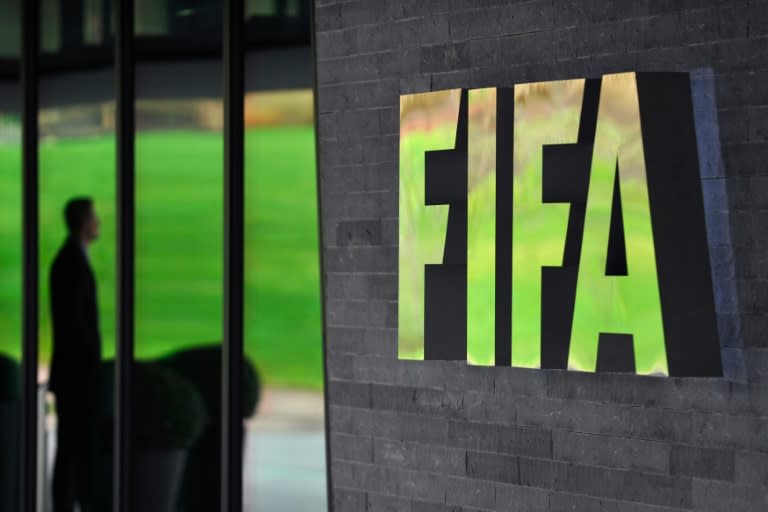FIFA bars Russia's Mutko after eligibility test failure
FIFA has barred Russian deputy prime minister Vitaly Mutko, chief organiser of the 2018 World Cup, from sitting on the world football's ruling council after he failed an eligibility test. Mutko, who has also been accused of involvement in Russia's sports doping scandal, had been a candidate for a European seat on the FIFA Council to be decided in April. Mutko, 58, has had a seat on the FIFA top table since 2009. He was barred from standing again "due to his position as deputy prime minister", FIFA said in a statement. FIFA's governance committee highlighted the principles of "political neutrality and the prevention of any form of government interference" to declare Mutko "ineligible". The Russian official, an ally of President Vladimir Putin, said he would not appeal against the decision by the review committee. "They want the organisation to be politically neutral, so that civil servants and representatives of the authorities of different countries don't run in all bodies. It is their right," Mutko told TASS news agency. FIFA's ethics code prohibits political interference in football affairs and the world body has in the past suspended national federations where governments have been judged to have taken control. Mutko's FIFA seat is up for re-election in April and all candidates must be vetted by a review committee under new rules brought in after world football's corruption scandal. - New blow - The decision is a new blow to Mutko at a time when Russia has spent huge amounts on attracting events such as the 2014 Winter Olympics and the 2018 World Cup. He was barred from last year's Rio Olympics in the fallout from an inquiry which accused Russia of "state-sponsored" doping. But a source close to FIFA denied that the doping scandal had played any role in the decision. "This decision by the review committee was taken because of the deputy prime minister's post that Mr Mutko occupies and so the possible interference and conflicts of interest," the source told AFP. Putin promoted Mutko from sports minister to deputy prime minister last October despite the controversy raging over doping in Russian sport. A report by Canadian lawyer Richard McLaren for the World Anti-Doping Agency (WADA) said the sports ministry had organised the doping. Mutko and the Russian government have strongly denied any involvement in the use of banned substances however. The McLaren report "played absolutely no role in the decision of the commission", according to the source close to FIFA. The commission can also not prevent Mutko from remaining as head of Russia's 2018 World Cup organising committee. He is also head of the Russian federation. "That is not part of FIFA's jurisdiction," the source said. The 55-member UEFA will choose its FIFA representatives at a congress in Helsinki on April 5. The remaining candidates are German federation chief Reinhard Grindel, Hungary's Sandor Csanyi, Cypriot Costakis Koutsokoumnis, former international Dejan Savicevic of Montenegro and Iceland's Geir Thorsteinsson. FIFA started its integrity check on candidates in December and there have been doubts about Mutko's eligibility since. The other candidates have all passed, sources said. FIFA president Gianni Infantino has denied however that he had asked Mutko to stand down as World Cup organiser because of the doping controversy. When WADA released the first McLaren report last July, it called on FIFA to investigate Mutko. A follow-up McLaren report implicated Mutko in the cover-up of a doping failure by an Uzbek player in the Russian Premier League. McLaren also said that as sports minister, Mutko must have known about the "state-sponsored" doping programmes used to help Russian athletes at the 2012 London Olympics, 2014 Sochi Winter Olympics, and the 2013 world athletics championships held in Moscow. He has insisted the doping storm will not disrupt Russia's preparations for the World Cup, to be held in 12 venues across the country from June 14 next year.



